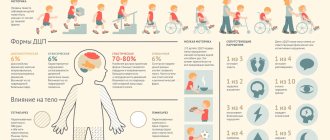The female body reacts differently to the start of pregnancy mode. Global hormonal changes and new stress are often accompanied by toxicosis, the symptoms of which include nausea and vomiting.
Those who have been planning a pregnancy are prepared for the onset of nausea and regard it as the first sign of an accomplished conception. When unpleasant sensations begin to grow and interfere with the normal rhythm of life, pregnant women wonder how long the undesirable effects will last.
At first
Why nausea begins in early pregnancy is not known for certain. Doctors identify a number of factors:
- hormonal changes;
- presence of chronic diseases;
- hereditary predisposition;
- worries and overwork.
More clarity on when nausea occurs. Approximate time from the first weeks after conception. The phenomenon is associated with changes in hormonal levels and an unstable state: while the embryo moves towards the uterus, it is perceived by the body as a foreign body. After implantation of the fertilized egg into the uterine endometrium, the formation of the placenta begins. Until the most important organ begins to function fully, most pregnant women experience lightheadedness, weakness and irritability.
Doctors urge people to take the new status calmly, considering mild toxicosis a physiological phenomenon. Treatment with mild natural remedies is prescribed in case of increasing signs of intoxication.
How long does it take for relief to come? The state of health usually stabilizes after the 1416th week of pregnancy.
If nausea persists for a long time, more than 10 weeks, contact your gynecologist. The same recommendation applies if symptoms of toxicosis appear after 16 weeks.
Causes of panic in pregnant women
A vegetative crisis or panic attack according to ICD-10 belongs to a subclass of neurotic disorders, so the mechanism of their occurrence is determined by the characteristics of the human nervous system. What can trigger a panic attack during pregnancy? In the process of expecting a child, every woman’s instinct for procreation intensifies, and, accordingly, fear for future offspring. Before giving birth, a woman often replays negative situations in her head, like how someone attacks her in a dark alley, how she gets into an accident, trips, falls on her stomach, etc. In addition to the main fear of losing a child, a woman is often afraid of the birth itself, changes in her body due to pregnancy, and fears that she will not cope with the role of a mother after the birth of the baby. Such psycho-emotional stress can cause panic attacks. And if a woman is generally restless by nature, easily worried, and often experiences emotional upheavals in life, then the risk of developing a vegetative crisis during pregnancy increases many times over. The cause of the disorder may be hormonal changes in the body. Sometimes panic attacks are a consequence of other somatic diseases, brain dysfunction, neuroses or depression. Dizziness and a sudden increase in heart rate during pregnancy can also cause anxiety attacks. The reason may be external circumstances: a conflict situation, a large crowd, a confined space.
Late toxicosis
When gagging, hypotension and general weakness occur later in pregnancy, doctors regard the condition as pathological. The complication is more common in patients with chronic diseases of the heart, liver and kidneys. Late toxicosis is accompanied by edema, pressure surges, high levels of protein in the urine, headaches, and excessively rapid weight gain.
The time of occurrence of gestosis also varies in the second or third trimesters of pregnancy.
A patient in whom gestosis is suspected is prescribed a comprehensive examination. Based on its results, treatment is carried out in a hospital or outpatient setting.
Degrees of manifestation
Each pregnant woman experiences the period of toxicosis in her own way. Some lucky women are not affected by this phenomenon at all, others cope with home methods, and still others are forced to stay in the hospital under the supervision of doctors. The severity and duration of toxicosis is unique for each pregnancy.
There are three degrees of severity of the condition:
- the first is a slight feeling of nausea and vomiting up to 5 times a day. Weight decreases slightly - to 3-4 kg;
- second - the daily number of vomiting attacks increases to 10, and weight loss - to 6-8 kg. Weakness and rapid heartbeat occur, blood pressure decreases;
- the third - severe vomiting, up to 20 times. It is accompanied by severe weight loss, fever, fainting and pressure surges. Dangerous signs of dehydration appear. Severe cases are very rare, but all require immediate medical attention.
At what time does nausea occur? It can bother you in the morning, when the lack of glucose in the blood reaches its maximum, and in the evening, after a busy day of work. Some complain of lightheadedness that gets worse after eating.
Constant nausea can lead to hospitalization. To treat toxicosis, medications, homeopathic preparations, immunocytotherapy and aromatherapy, and plasmapheresis are used. If you seek medical help in a timely manner, toxicosis can be successfully cured.
How to improve your quality of life?
Simple recommendations that work both in the early stages and closer to childbirth will help you cope with this annoying phenomenon and make you feel better:
- give up bad habits;
- Avoid strong odors. Do not wear perfume, do not drink coffee, try to reduce the time and number of trips on public transport, visits to crowded places;
- walk more often at a leisurely pace;
- if there are no contraindications, do light exercises;
- maintain a positive mood, avoid worries;
- Don't get overtired. You should take breaks at work, and it is unacceptable to forcefully do household chores. The main thing is to have enough time for rest and sleep;
- Try using aromatherapy techniques. Place one drop of natural essential oil of mint or ginger on a cloth napkin. Carry a handkerchief with you and smell it when an attack begins.
The path to happy motherhood
Anxiety disorder after childbirth, especially against the background of postpartum depression, is a frequent visitor to a young family, especially where the child is the first and long-awaited.
For both pregnant and nursing mothers, treating anxiety disorder without antidepressants and anti-anxiety medications is a priority. And this is not at all a reason to stop breastfeeding - the best thing that has been created for the baby’s health.
Psychotherapy, auto-training and self-relaxation training, work with significance, in special cases - hypnosis - this is the arsenal of a psychotherapist in the case when there are two patients.
Doctors at the Mental Health Center have extensive experience working with pregnant women and women after childbirth. A full-fledged arsenal of modern psychotherapy tools makes it possible to carry out treatment without drugs, avoiding harmful effects on the child and giving the mother the opportunity to fully enjoy the joy of motherhood.
About nutrition
Some recommendations concern diet. If a pregnant woman limits herself to food, this negatively affects the well-being of the expectant mother and fetus. It is necessary to reconsider the guidelines in this matter:
- give up heavy dishes in favor of light ones - vegetables and fruits, fermented milk products. This diet can ease digestion and general condition in the early stages of pregnancy and later;
- try to keep your diet balanced and varied;
- take multivitamin complexes;
- introduce fractional meals - in small portions every 2-3 hours;
- Warm or slightly chilled food is preferred;
- When morning sickness sets in immediately after waking up, a glass of water, a cookie, or a handful of nuts will help relieve it. Have a snack in bed;
- after breakfast, drink mint tea with lemon and sugar;
- helps to cope with attacks of nausea by sucking pieces of fruit with a sour taste - lemon or orange;
- drink enough fluids. Green tea and berry juice, fruit juices, rosehip decoction are suitable;
- you can replenish the lack of fluid with juicy fruits - melon or watermelon;
- A moderate amount of salty foods helps replenish the lack of minerals in the early stages. In a later period, it is undesirable to lean on pickles or fish: this will provoke the appearance of edema;
- Snacks should be taken throughout the day. Eat crackers, a handful of dried fruits or nuts, a banana, an apple or a tangerine - and it will be easier for your stomach to resist nausea;
- Ensure adequate protein intake. Dishes of boiled lean meat or fish, cottage cheese and eggs are required;
- do not lie down immediately after eating, wait at least half an hour;
- If lightheadedness in the evening makes it difficult to fall asleep, think about how you spend your time before bed. Walking, as well as drinking juices or compotes from fresh sour berries will reduce the likelihood of unwanted sensations.
Which way should I choose? Try different options, look for the one that can suppress the unpleasant feeling and alleviate your condition.
Anxiety during pregnancy
1. What if toxicosis can deprive a child of important nutrients?
There's no need to panic if you can't stomach anything more exotic than crackers and dry toast. Your body can use its nutritional resources if necessary. But if you are dehydrated, you begin to lose weight, or have been sick for a long period of time, it is better to consult a doctor.
2. Does sex cause pain to the baby?
Sex is completely safe for most couples. If you are in a risk category, your doctor will definitely warn you. However, for your own peace of mind, you do not have to wait for the doctor’s permission, but ask him all your questions at the next consultation. Most likely, he will advise you to refrain from sudden movements and acrobatic positions - this can lead to vaginal bleeding or even placenta previa or rupture of the membrane (and then there is a risk of premature birth). But if you are careful, your baby will not be in any danger.
3. Will painkillers harm the baby?
Pregnancy already has many unpleasant “symptoms”; it should not turn into 9 months of agony. Many experts agree that painkillers in small quantities will not harm the child's health. But you should not self-medicate; consult your doctor before taking this or that drug.
4. You accidentally fell. Was the baby hurt?
If you did not fall on your stomach, then most likely everything is fine with the child. Your body can provide more protection for your baby than you think. Injuries during pregnancy can lead to miscarriage or premature birth. However, if there is no vaginal bleeding or loss of amniotic fluid, then there is no need to worry too much. Of course, if you didn’t just stumble on the street, but fell down the stairs or had an accident, you don’t need to hope for “maybe” - in this case, it’s better to be safe and call an ambulance.
5. Is sports safe during pregnancy?
Women who are not in the risk category can, in most cases, continue their usual sports activities for a certain period of time. Reasonable physical activity, on the contrary, is beneficial for both mother and fetus. If you have complications, then it’s better not to risk it. In any case, your doctor should be aware that you are playing sports, then he will be able to warn you about the danger in a timely manner.
6. Is it safe to fly on an airplane while pregnant?
Quite. Just remember that during the flight you need to sometimes get out of your seat and also do exercises for your legs - this will help prevent swelling and blood stagnation in your legs. However, some airlines may ask you to provide a doctor's note confirming that you are at least 6 weeks away from giving birth.
7. Should I give up the computer during pregnancy?
Even if this is necessary, in the modern world it is almost impossible, don’t you agree? It is reassuring that not a single study has yet proven that a computer can harm the fetus. One condition: do not stay up late in front of the monitor - healthy sleep is especially important for you now.
8. Is the child moving too actively?
A child's activity may change several times a day. If you feel at least 10 movements within 6 hours, your baby is fine.
9. What if you give birth before reaching the hospital?
The body usually gives the expectant mother a lot of warning signs that labor is about to begin, so you will have enough time to get to the hospital safely. But even if labor begins on the way, don’t worry: modern ambulances are very well equipped, so they can provide you with qualified assistance.
10. Will late childbirth affect the child’s health?
Most doctors perform an ultrasound if the baby is a week late in arriving. The doctor will ask you to monitor your child's activity level. If he comes to the conclusion that it is time for the baby to be born, then, most likely, labor will be stimulated with the help of special medications. And try not to worry, there is nothing terrible in the fact that the child is born a little later than the due date.
A look into the future
It is difficult to make a general forecast about the course of toxicosis and name specific indicators - they are always individual.
The emotional mood becomes important: if you convince yourself that vomiting is inevitable, it will not keep you waiting. You should not concentrate on being unwell; feeling sick and unhappy is completely unacceptable.
With the onset of pregnancy comes responsibility for the health of both. The well-being of her child depends on the well-being of the expectant mother. Change your lifestyle by taking care of proper nutrition and routine - it will become easier for both you and your unborn baby.
Predisposition to increased anxiety during pregnancy
Can a person be prone to fear? Experts say that there are certain risk groups that are most likely to experience various anxiety states during pregnancy. These include:
- Overly emotional women who could easily start causeless quarrels in ordinary life, and then just as easily and quickly forget about them
- People who have had any anxiety disorders in the past, this includes depressive and manic disorders. In such cases, consultation with a specialist is required.
- Women with a history of alcohol or drug use
- Genetic predisposition has nothing to do with mental disorders acquired during life. At the same time, throughout her life, a woman might not notice any abnormalities in herself, but due to an increased emotional background and a stressful state, congenital abnormalities or a predisposition to them are actively developing
Also, some pregnant women may fall into such risk categories if in the past they experienced unpleasant situations while carrying a child - miscarriage, complications during childbirth, freezing of the fetus in the womb.
Online consultation: ask a psychologist a question












